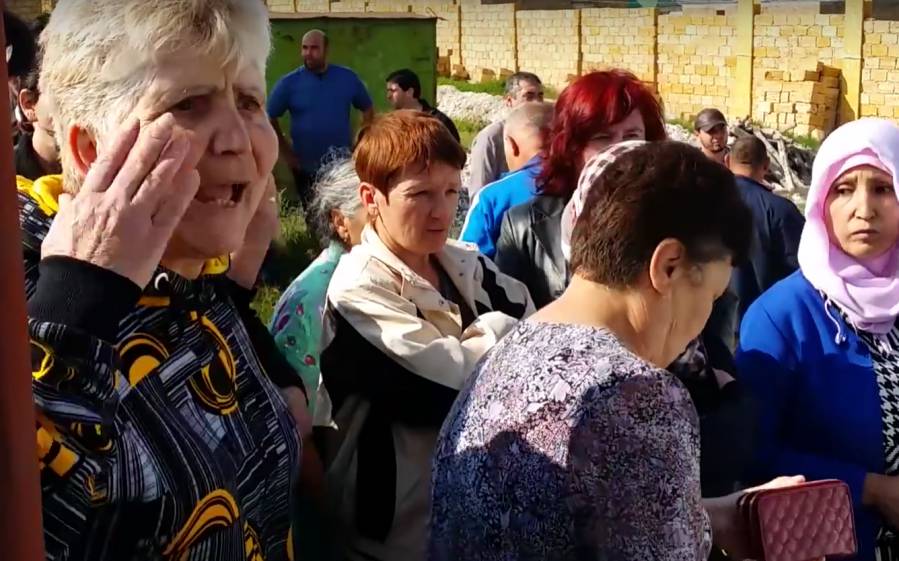Chechnya style lawlessness will not work in occupied Crimea, however much Russia tries

Russia has concentrated negative and repressive features from all over the Russian Federation in occupied Crimea, a Russian human rights activist has said. However, neither she, nor a Crimean Tatar activist whose own son and nephew were abducted, believe that Russia will succeed in imposing the unbridled lawlessness seen in the Caucasus, although not necessarily for want of trying.
Fear that Russia was using the same tactics as in Chechnya was voiced within months of Russia’s invasion and annexation of Crimea. The first disappearances had been of civic activists, and are believed to have been carried out by the so-called ‘self-defence’ paramilitaries who worked in tandem with the invading Russian soldiers. By August Russia had begun carrying out armed searches of mosques, religious schools and Crimean Tatar homes. Soon after that the Crimean Tatar Mejlis, or self-governing body of the main indigenous group in Crimea came under mounted attack and has now been banned. Amid all of this came abductions and / or disappearances of young Crimean Tatars.
On Sept 27, 2014, 19-year-old Islyam Dzhepparov and his 23-year-old cousin Dzhavdet Islyamov were seized by masked men wearing black uniforms, forced into their van and driven away. They have never been seen again, and attempts to get a proper investigation launched were fruitless.
It was after this that Islyam’s father Abdureshit Dzhepparov formed the Crimean Contact Group on Human Rights. The Group, he explained in a Krym.realii interview, carries out constant monitoring of what is going on in Crimea. They also try to prevent any situations similar to what happens in the Caucasus and react swiftly in suggestions where there is a danger of conflict.
While there are similarities, the scale is quite different. In the Caucuses, hundreds have been abducted or arrested. He believes that even should Russia want to use the model of terror applied in the Caucasus, it cannot succeed. Crimea is under the close scrutiny of the international community
“There is another reason, namely the peaceful doctrine of the Crimean Tatar national movement. We try to hold to it and even to harsh attacks react only through peaceful methods”, Dzhepparov explains.
Krylenkova agrees. The disappearances have followed a Chechen scenario, but there are a lot less, and there haven’t been the whole number of abductions and subsequent killings seen in Chechnya. What she can note is that Russia has taken every negative practice and begun implementing them in Crimea, where they take on a local colouring.
You see the same blanket bans on any gatherings that have become standard in the Krasnodar regions, while the same persecution of devout Muslims seen in Bashkiria is now applied in Crimea under occupation. Charges of involvement in Hizb ut-Tahrir have long been used to arrest people and sentence them to huge terms of imprisonment in Bashkiria.
This ‘tradition’ is a particularly vicious one. There are now 19 Crimean Muslims in effectively indefinite definition on charges of involvement in an organization which is legal in Ukraine.
There is another factor involved in the differences. Many Crimean Tatars and other Ukrainians have not been cowered, but immediately report armed searches, arrests, etc. and come out expressing their indignation.
Russia has resorted to increasingly repressive measures against those who come out in solidarity, with the arrest and 5-day periods of detention of 10 people, merely for showing solidarity, an ominous new development. There is nothing as yet to indicate that this will work. Nor can they arrest everybody.
In Bakhchysarai on May 12, 2016, a large number of elderly women were among the crowd who surrounded the men in masks taking Remzi Memetov away. One woman cried:
“Our people have never caused anybody harm, never! We lived so many years in Ukraine, there was not one terrorist act, no harm…. You have no right to carry out such searches…”
Others backed her: “We are in our native land”.
Russia has also failed abysmally to carry off quick, no-questions-asked ‘trials’ in Crimea. The men have proper lawyers, and even if nobody doubts that their conviction has been ordered, Russia will not succeed in hiding the true nature of the cases.





